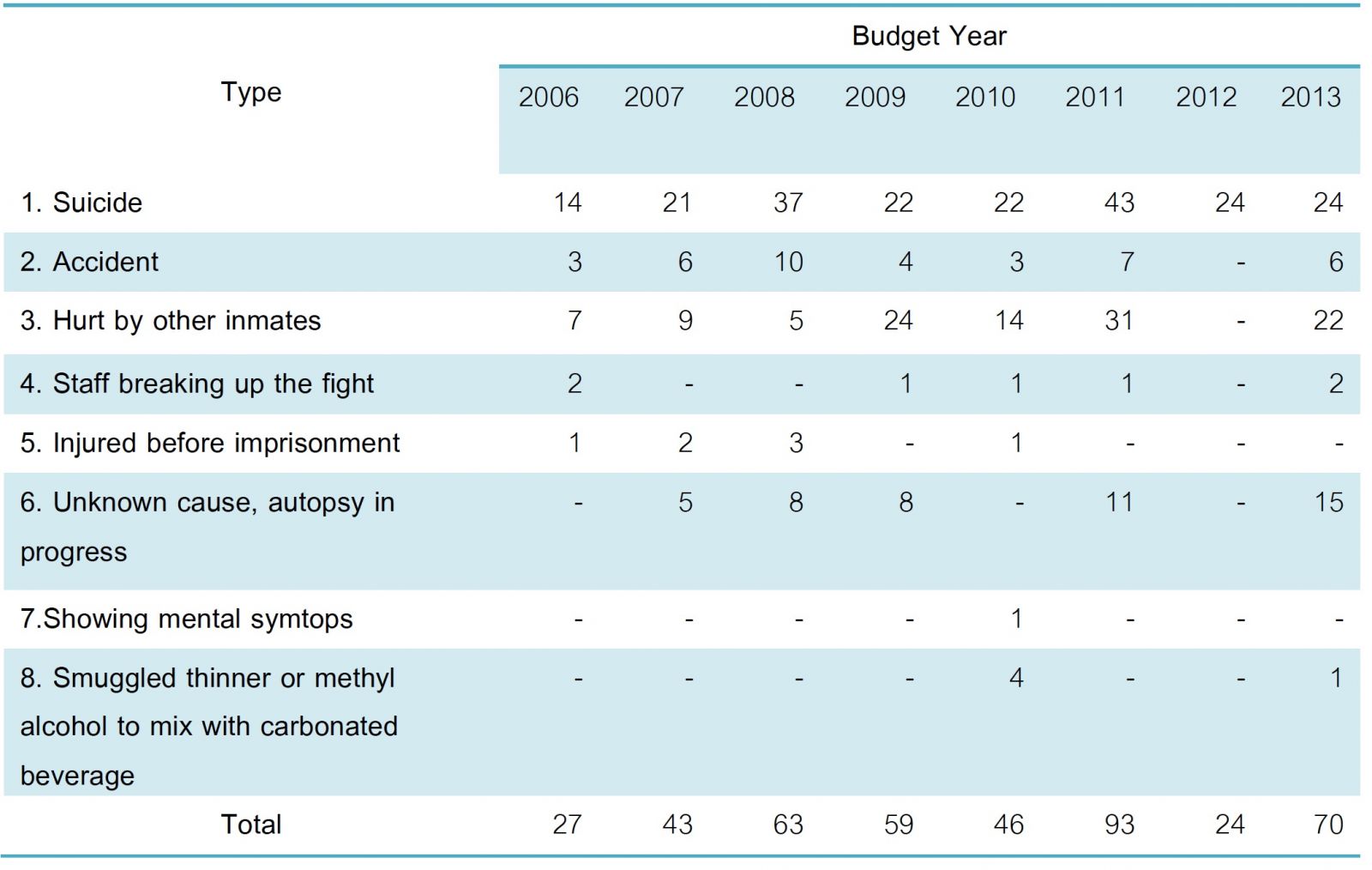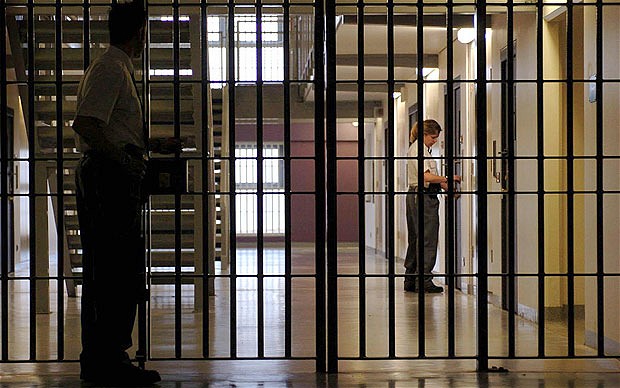Modern world system of punishment has made ‘prison’ a part of the society. It also results from the belief that imprisonment will bring remorse for their wrongdoing. Prison becomes main option for altering the wrongdoer. In 2015, Thailand holds the first place that has the most detainees in prisons.
International Centre for Prison Studies (ICPS) published information regarding inmate statistic of 2015. There are 330,923 inmates in Thailand, first rank in ASEAN. 491 in every 100,000 Thais are prison inmates while the capability for sanitary is limited to 190,000 people.
The inordinate number of prison inmates has created many more problems. One of them is mental health problem among inmates. Mental Health Act, B.E.2551 stated that all inmates who is harmful to themselves and others or prison inmates with a tendency of disorder must be treated.
Information by Department of Corrections stated that in 2014 there were 314 inmates with mental and behavioral disability. While psychologists of Department of Corrections indicated that there are approximately 3,000 inmates diagnosed with mental illness or schizophrenia each year. Most has developed after imposed on imprisonment, especially those who experience it for the first time. The number is high at 211,361 or 84.20% of 312,585 inmates in total.
New inmates have a great tendency to have mental illness.
PornpanSilapawattapon, a clinical psychologist in Department of Corrections said even though only 3,000 inmates are diagnosed with mental illness or schizophrenia, in fact, almost all inmates have mental health problem, especially feeling depressed from being missed out from the world outside.
All new inmates must have mental health assessment, however, it is quite impractical given that there is only 29 psychologists in Department of Corrections. It means that one psychologist is in charge of 7,288 inmates.
The disproportionatenumber of inmates to psychologists in prison forces the nurse in some prison to do this duty. However, they fail to assess and improve mental health of every inmate. Occasionally, they learn that some inmate is mentally ill after they have already committed suicide. In 2013, there are 70 unnatural deaths of inmates while 24 died from suicide.
Table indicating number of convicted inmates’ unnatural deaths, classified by mode of death during budget year 2006-2013 from the official record

Source: Department of Corrections
This relates to the information provided by a nurse in women prison in central region. She told that as soon as inmates who face most severe penalty or death penalty received the news, they wil suddenly develop depression.
“There are 70 mentall ill patients in prison, 13 of them are in nursing home. They can’t be in prison because they are agressive and cause trouble, fighting with each other. Most of them have developed depression and schizophrenis. We take care of every patients with death penalty because they automatically develop depression. They receive suggestion and guidance from doctor and psychologist team.”
Empty stomach, lack of sleep are main causes for mental health problem.
Full stomach and good sleep are the first and most fundamental factor for every human being before leading to psychological need. These are two things that cannot be found with over 300,000 inmates crammed in one prison.
“Most new inmates have mental health problem because they cannot adjust during the early period. Unable to fall asleep is the most common symptom at the beginning because there is only one-tile space for each person. Each prison is equipped with sleeping pill for inmate with such symptom” said psychologist.
This also happened to Chompoo (false name), a woman inmate in Central region told us about the living condition in prison where nothing is sufficient; shelter or food. At the beginning, she could not bare to sleep on only one tile. Later, she learned that she could buy more space from the next inmate. If you have not been in prison long enough to be intimate with the warder or work in food department, you will not get good food and must buy additional food from shops in prison.
Research found the heavier penalty is, the more illness comes. Thousands have no visitors.
The change of status from one ordinary woman to being an inmate has a tremendous impact on one’s life, especially psychologically after the absence of freedom. The heavier the penalty is, the more severe depression becomes. A great amount of women inmates have to take a long time to accept the condition of being confined, forget those other time and burden outside. Meanwhile, many are denied and disapproved by family, as there are4,376 female inmates who have no visitor.
Assoc. Prof. Dr. Kritaya Archavanitkul and Kullapa Wajanasara, Institute for Population and Social Research, Mahidol University mentioned mental health of female inmates in the study ‘Female inmate: situation and policy guideline”. It was stated that although inmates with mental disorder do not reach 10% of all inmates with all types of deformity, but to take care of female inmates with bad mental health is a difficult task. It might be that prison staff or Thai society in general do not have basic knowledge to deal with mentally ill person whose behavior is unpredictable. Some are depressed, discouraged or suicidal. Some has a tendency to be violent with themselves and others. Some are in their world as they’re in denial of the real world and like to speak alone... They need help from psychiatry specialist to be assessed, controlled and treated so they can live with other inmates. Currently, many prisons are trying to treat these mentally ill inmates on their own by creating a volunteer group. They help those inmates to follow doctor appoinment, take medicine as precribed and create rehabilitation activity, etc.
Only imprisonment or should be treated by other method?
Even though, there has been an attempt to solve problem about mental health of prison inmate, the belief that one must be imprisoned for penitence is deeply held in Thai society.
According to Criminology theory, there are four purposes of prison; retribution, incapacitation, rehabilitation and deterrence. Prison should be systematized to achieve these four primary purposes.
However, in practice, the process to serve each purpoe is in conflict. For example, length of prison sentence are long in retribution for one’s action and to deter them from repeteing that action. However, the result is that the bond that they have with family, community and society are destroyed due to lengthy prison sentence. This makes it difficult for them in terms of rehabilitation and to return back to the society. Some even proposed that prison is completely useless because prison has no value, basically just to prevent society from crime.
Go to 'จับตา' for “สิทธิประโยชน์ผู้ต้องขัง”
http://www.tcijthai.com/tcijthainews/view.php?ids=5624
www.facebook.com/tcijthai
Tags






